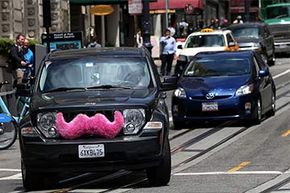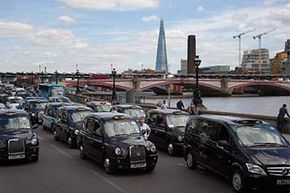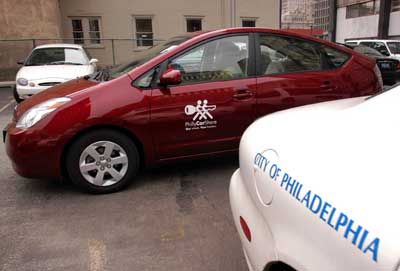From the first day of preschool, we're taught that sharing is a virtue. If little Billy wants the toy you're playing with, you (grudgingly) let him borrow it. On the playground, we're scolded by parents and teachers to "Take turns!" Sharing, we learn, is the glue that holds society together. It breeds trust, generosity and compassion among neighbors, cities and citizens. And now, in a brilliant Internet-inspired twist, sharing has launched an economic revolution.
The sharing economy is built on the idea of collaborative consumption. In the traditional capitalist economic model, goods are owned by individuals. If you want to be able to drive to the store or the airport, you need to buy a car. If you want to keep your lawn in control, you need to buy a weed whacker. That's called personal consumption.
Advertisement
Collaborative consumption, on the other hand, is when only a few individuals own the goods, but other people can pay for the privilege to "borrow" them. Basically, it's a monetized form of sharing. If you own a car, that has value — both to you and the guy who wants to borrow it to drive to Buffalo this weekend. If your car sits idle, you are squandering its value. Why not earn some extra cash by "sharing" it?
Starting in 2009 with the launch of the apartment-sharing Web site Airbnb, there has been an explosion of online companies enabling complete strangers to pay each other for the short-term use of goods or services: homes, cars, boats, dog sitters, office space, tools, grocery shoppers, tour guides and more. The sharing economy is attracting billions of dollars of venture capital, and old economy stalwarts — hotels, car rental companies and taxi drivers to name a few — are starting to sweat.
The rise of the sharing economy raises some important questions, though:
- Is a Facebook profile enough to trust someone with the keys to your apartment for the weekend?
- What is the line between personal and professional — if you drive people around for money in your car, aren't you a taxi driver [source: Sundararajan]? And don't you need a special license for that?
- What is the right balance between regulations that ensure public safety and the freedom to use your personal property as you want?
- Is the sharing economy really about virtuous collaboration, or is it just another Silicon Valley Internet bubble waiting to pop?
Let's start by tracing the evolution of the sharing economy, from preschool crayon-swapping to Airbnb.
Advertisement




